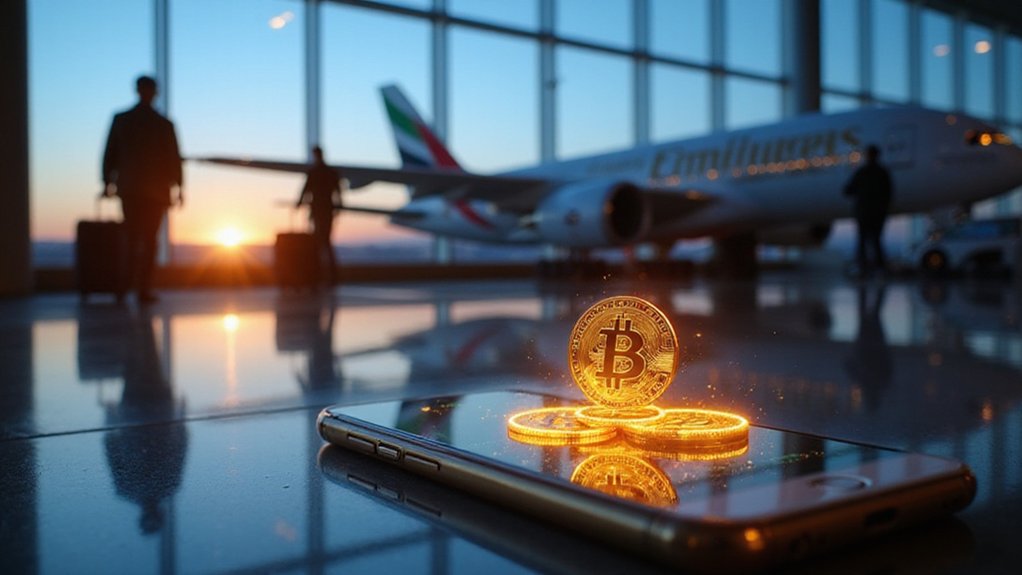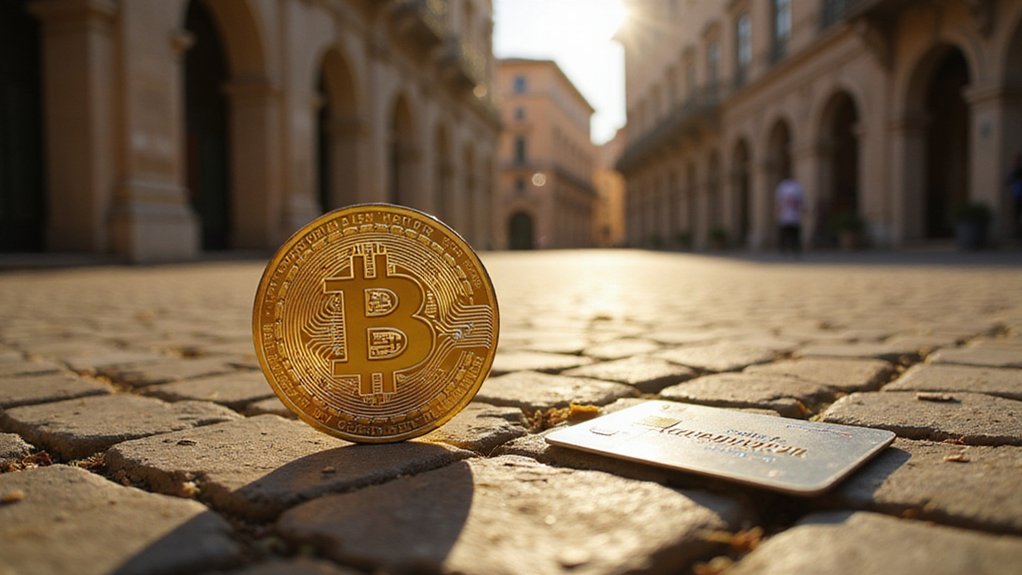Emirates has officially embraced the digital currency revolution, signing a memorandum of understanding with Crypto.com that will transform the Dubai-based carrier into the world’s largest airline to accept Bitcoin and cryptocurrency payments. The agreement, inked in the presence of Emirates Chairman Sheikh Ahmed bin Saeed Al Maktoum, signals a calculated bet on cryptocurrency’s mainstream adoption—though one wonders if frequent flyers will appreciate the irony of using volatile digital assets to purchase already-expensive airfare.
Emirates’ crypto gambit transforms expensive airfare into an even more volatile purchase—digital assets meet altitude in Dubai’s bold financial experiment.
The integration timeline reflects corporate prudence over crypto enthusiasm: implementation begins in 2025, with full rollout scheduled for 2026 pending security and compliance reviews. Emirates customers will eventually pay for tickets using Bitcoin, Ethereum, and potentially stablecoins through Crypto.com Pay, with payments instantly converted to fiat currency—a sensible hedge against the digital asset market’s notorious volatility. The inclusion of stablecoins makes particular sense given their volatility shock absorber function in digital asset ecosystems, providing price stability that traditional cryptocurrencies lack.
This strategic pivot targets younger, tech-savvy demographics while positioning Emirates at the forefront of digital transformation. Adnan Kazim, Emirates Deputy President and Chief Commercial Officer, emphasized the carrier’s commitment to adapting customer preferences, though the move seemingly reflects broader industry recognition that traditional payment rails increasingly feel antiquated to digital natives.
The partnership’s regional context proves particularly compelling. Dubai has methodically positioned itself as a global crypto hub, establishing clear regulatory frameworks that attract blockchain firms and cryptocurrency businesses. Emirates’ crypto adoption aligns seamlessly with Dubai’s vision for financial innovation, joining numerous local companies already accepting digital currencies across various sectors. The collaboration is expected to significantly enhance Crypto.com’s presence in the GCC region.
The airline industry implications extend beyond Emirates’ balance sheet. As one of the world’s top ten carriers, Emirates’ crypto acceptance elevates digital currency visibility while normalizing its use in luxury travel—a sector where payment innovation often precedes broader adoption. The carrier joins airBaltic and other progressive airlines, though its scale dwarfs previous crypto payment initiatives.
Whether this represents prescient positioning or expensive virtue signaling remains unclear. The initiative certainly demonstrates aviation’s evolving relationship with digital assets, though converting crypto to fiat upon payment suggests even Emirates maintains healthy skepticism about holding volatile digital currencies. The real test will be customer adoption rates when the system launches in 2026.









